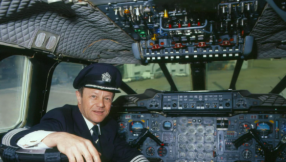Nigeria militants plan to destroy oil pipelines
The head of the state-run oil firm NNPC was quoted in Nigerian newspapers on Wednesday as saying the company had paid militant groups $12 million (6 million pounds) to protect facilities including the Chanomi creek pipeline in Delta state.
The Movement for the Emancipation of the Niger Delta (MEND), whose attacks have cut Nigeria's oil output by around a fifth since early 2006, said the money had gone to criminal gangs and that genuine "freedom fighters" could not be bought off.
"MEND is aware that huge payments have been made to some criminal gangs in Delta state as a protection fee.MEND will never sell its birthright for a bowl of porridge," the group said in an e-mailed statement.
"To prove that we are not a part of this deal, the Chanomi creek pipeline and other major pipelines will be destroyed within the next 30 days," it said.
Bomb attacks on pipelines in the delta, the hub of Africa's biggest oil industry which produces around 2 million barrels per day, have disrupted supplies from the world's eighth biggest oil exporter and helped push global energy prices to record highs.
Anglo-Dutch giant Royal Dutch Shell, whose facilities have been amongst the worst hit by MEND's campaign of sabotage, has a pipeline in the Chanomi creek which feeds into the Forcados oil export terminal.
"SETTLING THE BOYS"
The government of President Umaru Yar'Adua is under immense pressure to pacify the region and has promised to address the root causes of the unrest by bringing much-needed development to its impoverished and polluted villages.
Abubakar Yar'Adua, group managing director of the Nigerian National Petroleum Corp. (NNPC), on Tuesday told a parliamentary committee that the company had held talks with the militants and paid them funds so that it could repair Chanomi.
"The price we pay is very high. It is difficult to get expatriates to work in the Niger Delta," he was quoted as saying by Nigeria's The Guardian newspaper.
"We paid militants $12 million because we were losing $81 million to the problem of the Chanomi pipeline," he said.
Successive administrations in Nigeria have effectively bought off the leaders of militant groups in the Niger Delta by offering financial rewards for laying down their weapons, a strategy known locally as "settling the boys."
For similar reasons, local youths have been employed as vigilantes to keep watch over oil pipelines and protect them from attacks by crude oil thieves.
But the line between criminality and militancy has become increasingly blurred and analysts say the strategy has exacerbated the problem, giving criminal gangs greater leverage and arming fighters with fluctuating allegiances.













